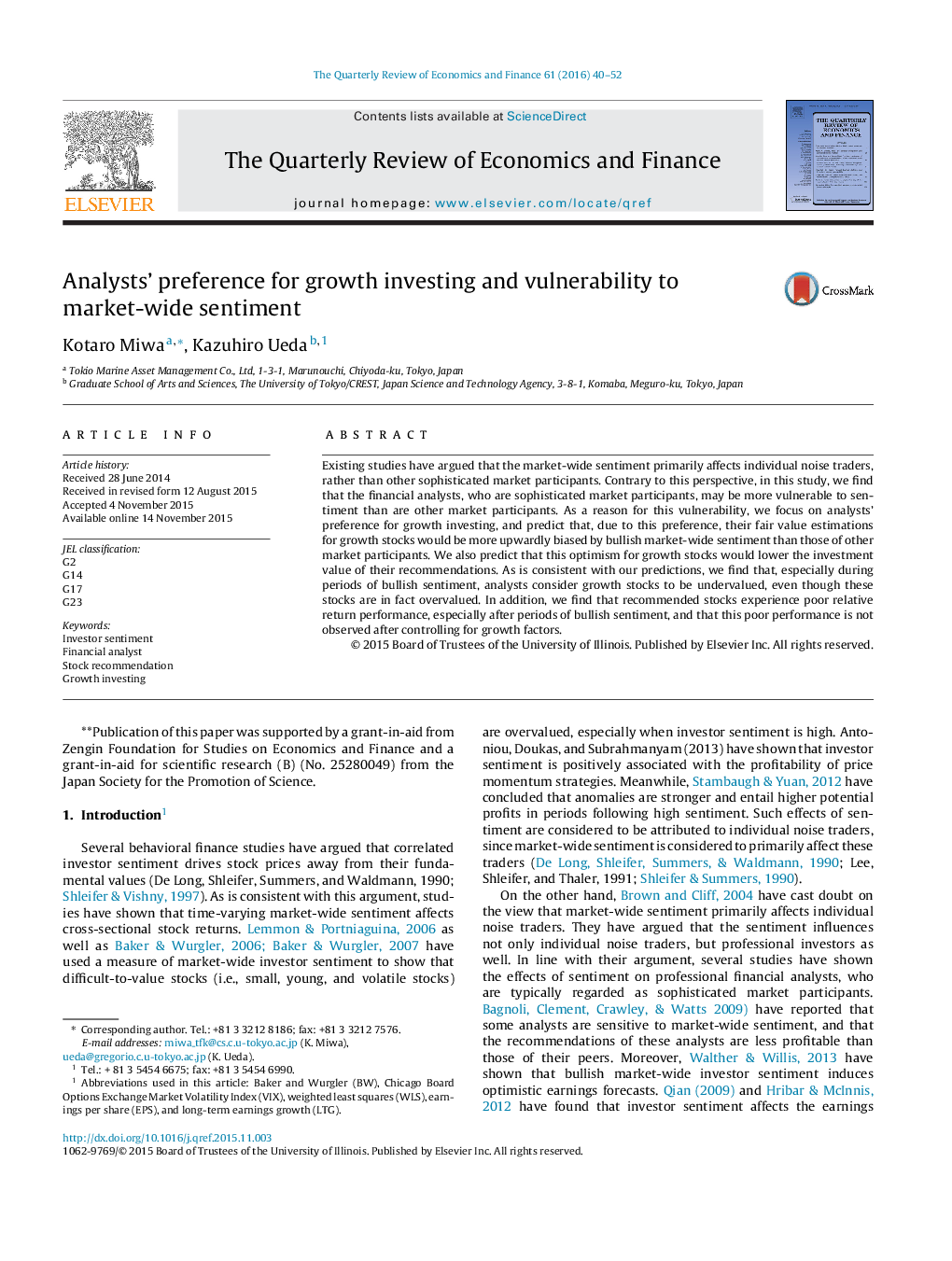| Article ID | Journal | Published Year | Pages | File Type |
|---|---|---|---|---|
| 981984 | The Quarterly Review of Economics and Finance | 2016 | 13 Pages |
•We show that financial analysts could be more vulnerable to sentiment than others.•During periods of higher sentiment, growth stocks tend to be more overvalued.•During such periods, analysts consider growth stocks to be more undervalued.•Those suggest that fair value estimates are more biased by sentiment than others.•Their biased view on growth stocks lowers return performance of recommendations.
Existing studies have argued that the market-wide sentiment primarily affects individual noise traders, rather than other sophisticated market participants. Contrary to this perspective, in this study, we find that the financial analysts, who are sophisticated market participants, may be more vulnerable to sentiment than are other market participants. As a reason for this vulnerability, we focus on analysts’ preference for growth investing, and predict that, due to this preference, their fair value estimations for growth stocks would be more upwardly biased by bullish market-wide sentiment than those of other market participants. We also predict that this optimism for growth stocks would lower the investment value of their recommendations. As is consistent with our predictions, we find that, especially during periods of bullish sentiment, analysts consider growth stocks to be undervalued, even though these stocks are in fact overvalued. In addition, we find that recommended stocks experience poor relative return performance, especially after periods of bullish sentiment, and that this poor performance is not observed after controlling for growth factors.
